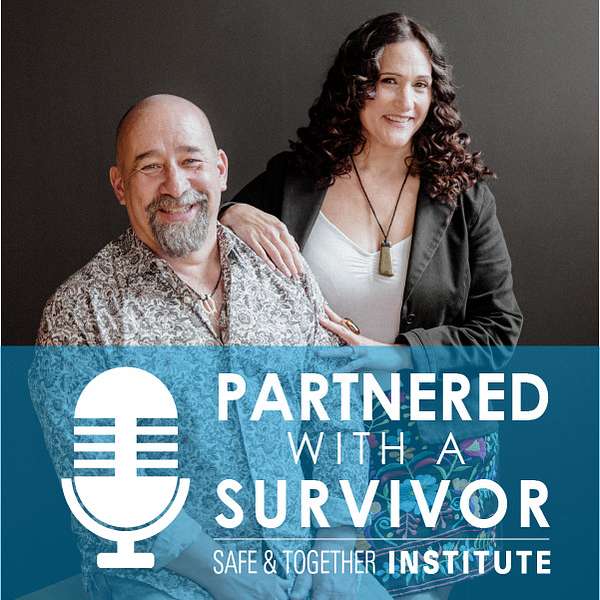
Partnered with a Survivor: David Mandel and Ruth Reymundo Mandel
This podcast is a series of conversations.
What started as a series of intimate conversations between Ruth and David that ranged from personal to professional experiences around violence, relationships, abuse, and system and professional responses which harm, not help, has now become a global conversation about systems and culture change. In many episodes, David and Ruth are joined by a global leader in different areas like child safety, men and masculinity, and, of course, partnering with survivors. Each episode is a deep dive into complex topics like how systems fail domestic abuse survivors and their children, societal views of masculinity and violence, and how intersectionalities such as cultural beliefs, religious beliefs, and unique vulnerabilities impact how we respond to abuse and violence. These far-ranging discussions offer an insider look into how we navigate the world together as professionals, as parents, and as partners. During these podcasts, David and Ruth challenge the notions which keep all of us from moving forward collectively as systems, as cultures, and as families into safety, nurturance, and healing.
We hope you join us.
Have an idea for a podcast? Tell about it here: https://share.hsforms.com/1l329DGB1TH6AFndCFfB7aA3a1w1
Partnered with a Survivor: David Mandel and Ruth Reymundo Mandel
Season 3 Episode 5: Minisode on Worker Safety & Well-Being: Managing Your Own Fears About the Safety of the Family
In this final installment of the minisode series on worker safety and well-being, Ruth and David discuss the importance of best practices around the question of practitioners’ own fears about the safety of the family. Anyone who has worked with domestic violence cases has felt fear and worry for the safety of the adult and child survivors. Sometimes these fears are directly related to the facts of the perpetrator’s pattern. In other instances, they are artifacts of prior cases, overwhelm from crushing workloads, or lack of training in working with perpetrators.
Ruth and David explore the factors that can influence professionals’ fears and some support strategies. These factors include:
- Fears that the professionals’ actions might make the situation worse
- Being influenced by other cases where the adult or child survivors were seriously abused or murdered
- Being overwhelmed with a heavy caseload makes it more difficult to focus on the specifics of a case
- Feeling like the survivor is not acting as they “should”
- Being hampered by a lack of skill and confidence working with perpetrators
Strategies to help can include:
- Assessing perpetrators’ patterns. While it is no guarantee, getting the history of patterns is one of the best ways to predict future behaviors.
- Partner with the survivor, who is the best source of information about the perpetrator’s pattern and their current protection efforts.
- Get supervision from your supervisor or from peers.
- Bring the case to a Safe & Together Intersections Meeting or another collaborative meeting to discuss it.
- Use the Safe & Together Institute’s Ally Guide to increase family and friend support for the survivor.
- Use the Safe & Together Institute’s Choose To Change Toolkit to increase positive support for the perpetrator.
- Agencies should work to create an environment where workers feel comfortable talking about their worries about their case.
Additional Minisodes on Worker Safety and Well-Being
- Season 2 Episode 23: Minisode on Worker Safety & Well-Being: When Workers Are Survivors Themselves
- Season 2 Episode 22: Minisode on Worker Safety & Well-Being: The Connection Between Worker Safety and Victim-Blaming
- Season 2 Episode 21: Minisode Series on Worker Safety & Well-Being: When Workers Are Targeted by the Perpetrator
- Season 2 Episode 20: Minisode Series on Worker Safety & Well-Being: Intro to the Series
Check out David Mandel's new book Stop Blaming Mothers and Ignoring Fathers: How to Transform the Way We Keep Children Safe from Domestic Violence.
Visit the Safe & Together Institute website.
Start taking Safe & Together Institute courses.
Check out Safe & Together Institute upcoming events.